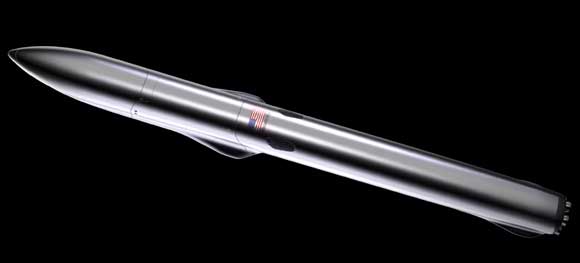Relativity Space raises $650M to scale production of Terran R rocket
June 9, 2021

Relativity Space, Long Beach, California, USA, reports it has closed a $650 million Series E equity funding round which will support the production of the Terran R, the company’s entirely additively manufactured rocket.
The funding round was led by Fidelity Management & Research Company LLC with participation from investors including Baillie Gifford, funds and accounts managed by BlackRock, Centricus, Coatue, K5 Global, Soroban Capital, Tiger Global, Tribe Capital, XN, Brad Buss, Mark Cuban, Jared Leto, and Spencer Rascoff, among others.
As a two-stage, 65.8 m tall rocket with a 4.8 m diameter, and a 5 m payload fairing, Terran R will reportedly be entirely reusable and capable of launching 20,000 kg to low Earth orbit, starting in 2024 at the company’s launch site in Cape Canaveral.
Created in Relativity’s Factory of the Future, by the same AM machines and team as Terran 1, Terran R has unique aeronautical features, complex structures, and has the ability to launch twenty times more payload than Terran 1 states the company. Terran R will be outfitted with seven additively manufactured Aeon R rocket engines capable of 302,000 lb. thrust each, while its upper stage houses one Aeon 1 vac engine.
“From our founding days in Y Combinator just five years ago, we planned on 3D printing Terran 1 and then Terran R – a 20X larger fully reusable rocket – on our Factory of the Future platform,” stated Tim Ellis, CEO and co-founder of Relativity. “Today we are one step closer to this goal. Together with our first rocket Terran 1, our second product, Terran R, will continue to take advantage of Relativity’s disruptive approach to 3D printing – reduced part count, improved speed of innovation, flexibility, and reliability – to bring to market the next generation of launch vehicles.”
“Relativity was founded with the mission to 3D print entire rockets and build humanity’s industrial base on Mars,” continued Ellis. “We were inspired to make this vision a reality, and believe there needs to be dozens to hundreds of companies working to build humanity’s multiplanetary future on Mars. Scalable, autonomous 3D printing is inevitably required to thrive on Mars, and Terran R is the second product step in a long-term journey Relativity is planning ahead.”
Within the last six months, the company has continued to execute on commercial and technical milestones, including signing its first anchor customer for Terran R. Relativity has now completed the Additive Manufacturing of over 85% of the first Terran 1 orbital rocket, including its first and second stage, keeping momentum for its launch end of this year from Cape Canaveral.
Relativity’s supply chain enables the company to build its rockets with 100 times fewer parts in less than 6sixty days. By fusing AM, Artificial Intelligence, proprietary software, and autonomous robotics, the company states that it has created an entirely new value chain for aerospace, starting with orbital launch.
















